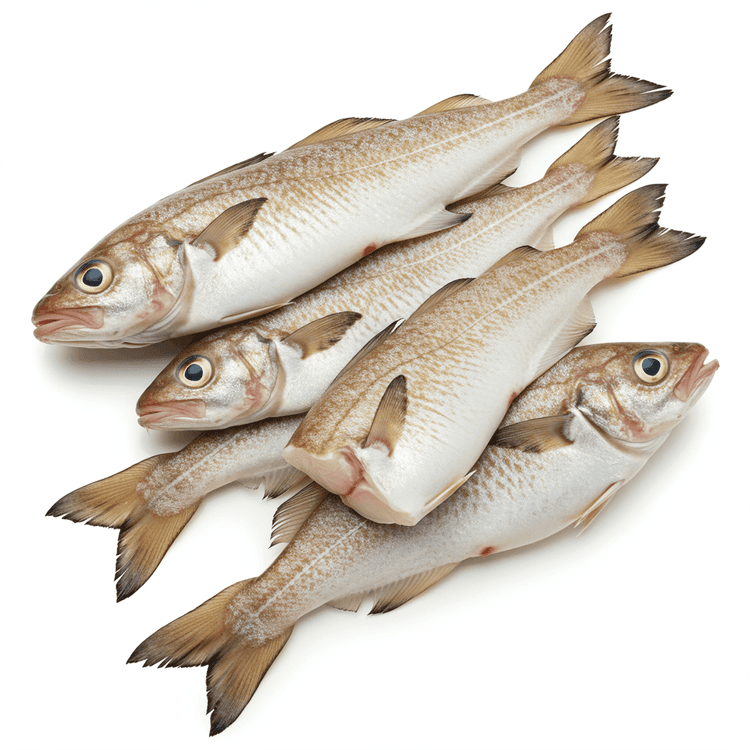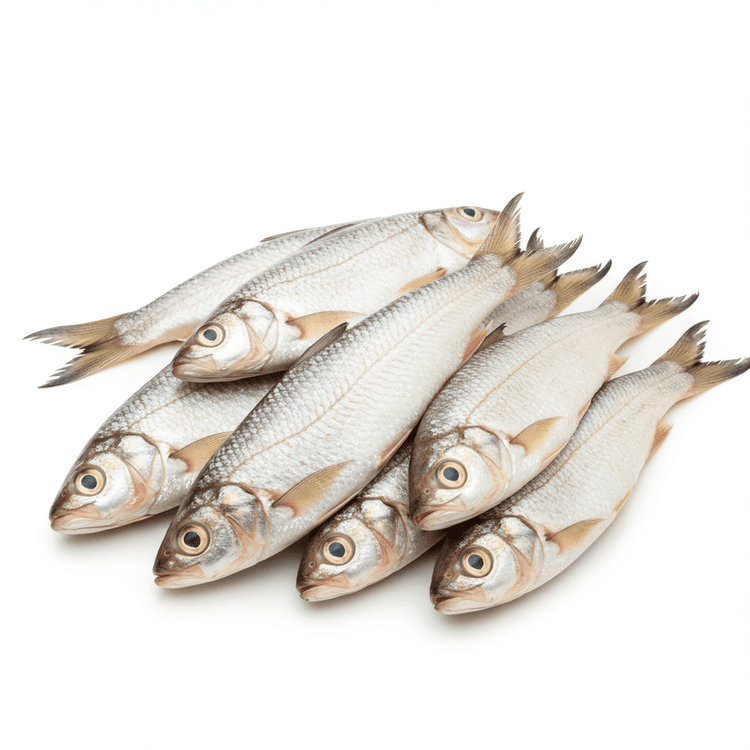
Haddock
Haddock is a popular white fish known for its mild, slightly sweet flavor and firm yet flaky texture. It has a silvery skin with a distinctive black lateral line running along its side, making it easy to identify. This versatile fish is often favored for its ability to absorb flavors from seasonings and marinades, making it a staple in seafood dishes. Rich in protein and low in fat, haddock is a nutritious choice for health-conscious cooks looking for lean seafood options.
Common Uses
- Haddock is commonly used in fish and chips recipes, where it is battered and deep-fried to achieve a crispy exterior and tender, flaky interior.
- It is often baked or roasted with herbs, lemon, and olive oil for a healthy and flavorful main dish.
- Haddock can be poached in milk or broth to retain its delicate flavor and moist texture, making it ideal for soups and chowders.
- Smoked haddock is a popular ingredient in dishes like kedgeree or creamy fish pies, adding a rich, smoky depth to recipes.
- It can be grilled or pan-seared with spices and served alongside vegetables or grains for a quick and nutritious meal.
Nutrition (per serving)
Nutrition (per serving)
Calories
90.0kcal (4.5%)
Protein
19.0g (38%)
Carbs
0.0g
Sugars
0.0g
Healthy Fat
0.5g
Unhealthy Fat
0.1g
% Daily Value based on a 2000 calorie diet
Nutrition (per serving)
Calories
90.0kcal (4.5%)
Protein
19.0g (38%)
Carbs
0.0g
Sugars
0.0g
Healthy Fat
0.5g
Unhealthy Fat
0.1g
% Daily Value based on a 2000 calorie diet
Health Benefits
- Rich in lean protein, supporting muscle growth and repair.
- High in omega-3 fatty acids, promoting heart health and reducing inflammation.
- Contains essential vitamins like B12 and B6, aiding in energy production and brain function.
- Low in calories and fat, making it ideal for weight management.
- Provides selenium, an antioxidant that supports immune health and thyroid function.
- Good source of phosphorus, which helps maintain strong bones and teeth.
Substitutes
Chefadora AI is here.
Experience smarter, stress-free cooking.
Storage Tips
To maintain freshness, store haddock in the coldest part of your refrigerator at 32°F (0°C) and use it within 1-2 days. For longer storage, wrap it tightly in plastic wrap or aluminum foil and freeze it at 0°F (-18°C) for up to 3 months. Thaw frozen haddock in the refrigerator overnight before cooking. Avoid leaving haddock at room temperature for extended periods to prevent spoilage.
Marnirni-apinthi Building, Lot Fourteen,
North Terrace, Adelaide, South Australia, 5000
Australia



